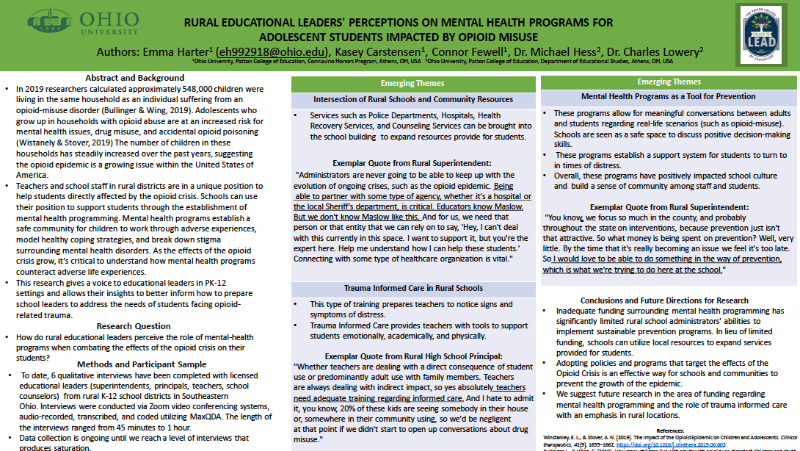
Leading through advocacy, education, and relationships
Rural Educational Leaders' Perceptions on Mental Health Programs for Adolescent Students Impacted by Opioid Misuse
Category: 2021
Author: Emma Harter
Institution Affiliation: Ohio University, Patton College of Education
Over the past decade, opioid misuse has risen at an alarming rate. Children from an opioid disorder household are particularly vulnerable to the strain an opioid addiction has financially, emotionally, and physically (Sapp & Hooten, 2018). In 2018 alone, there were 46,802 opioid-related deaths in the United States (CDC Wonder, 2019). As a consequence, the number of foster care entries of children from parental drug-using households has increased exponentially over the course of the past decade, with approximately 96,700 children in 2017 (Thompson, 2019). In 2017, an estimated 548,000 U.S. children lived in the same household as an individual suffering from a drug disorder (Bullinger & Wing, 2019). Teachers and school administrations are in a unique position to help students directly affected by the opioid crisis. We believe schools can use their position to support their students is through the establishment of mental health programs. These mental health programs work to establish healthy coping strategies and break down stigma surrounding mental health disorders. The goal of this study is to provide insight into mental health programs instituted by districts that are immediately impacted by the opioid crisis. Additionally, this study provides a framework for effective programs that can be utilized by school districts across the United States, particularly those facing the harsh realities of the opioid crisis within their students.
Watch Video
 Phone: 567-712-0697
Phone: 567-712-0697
